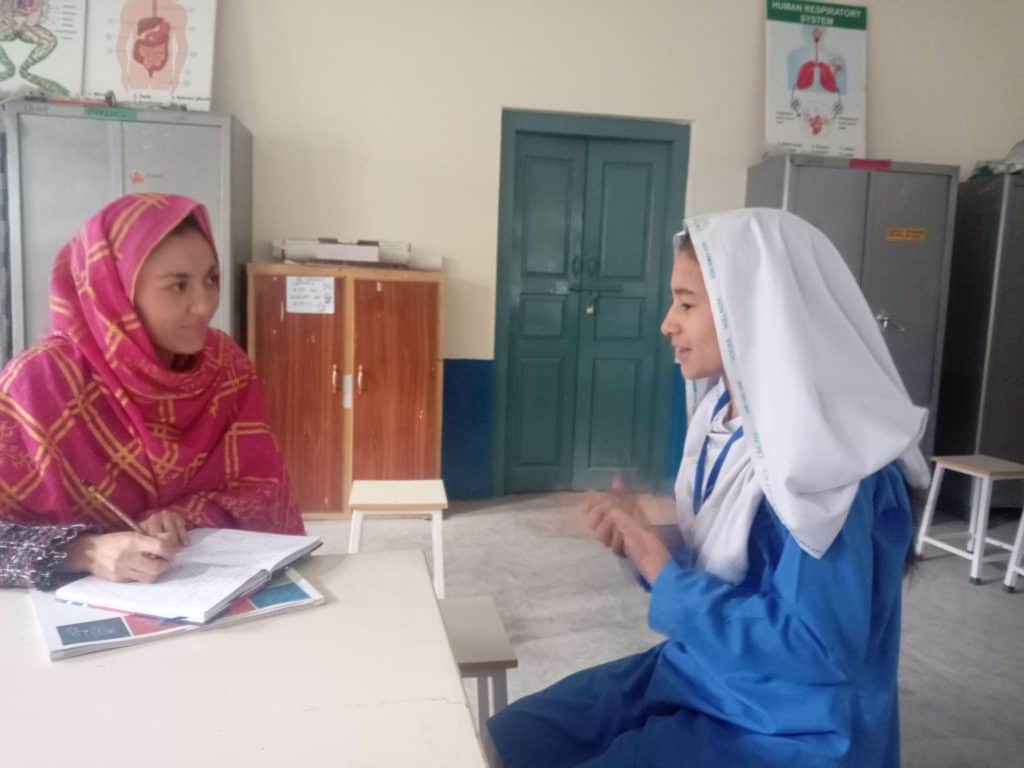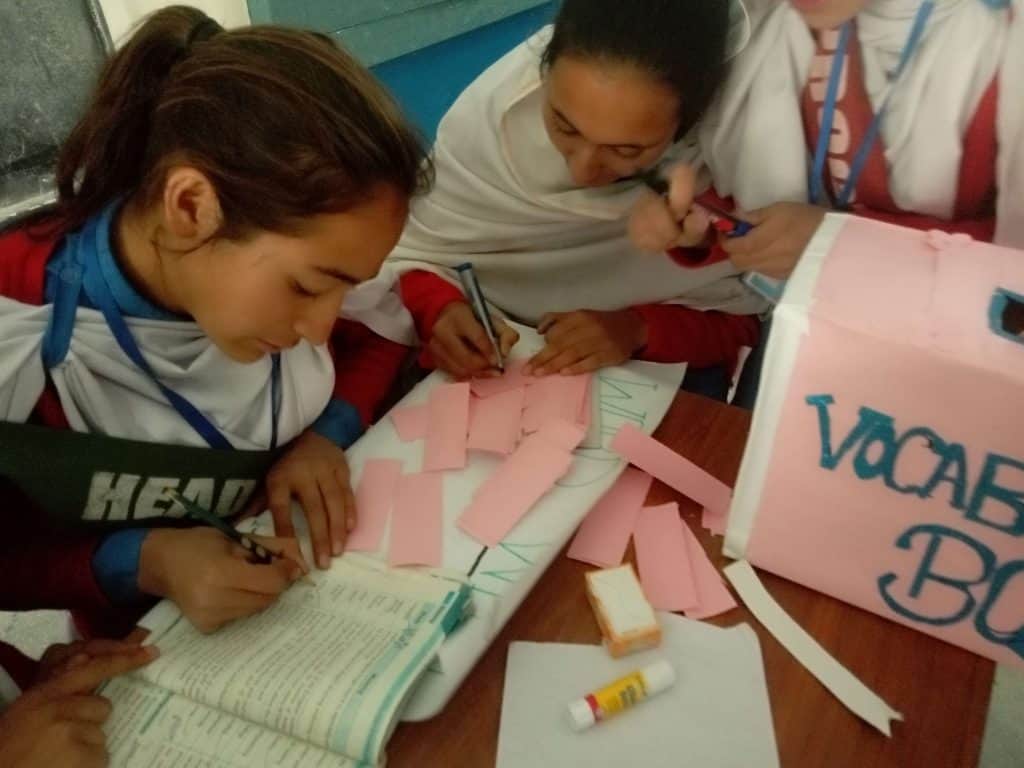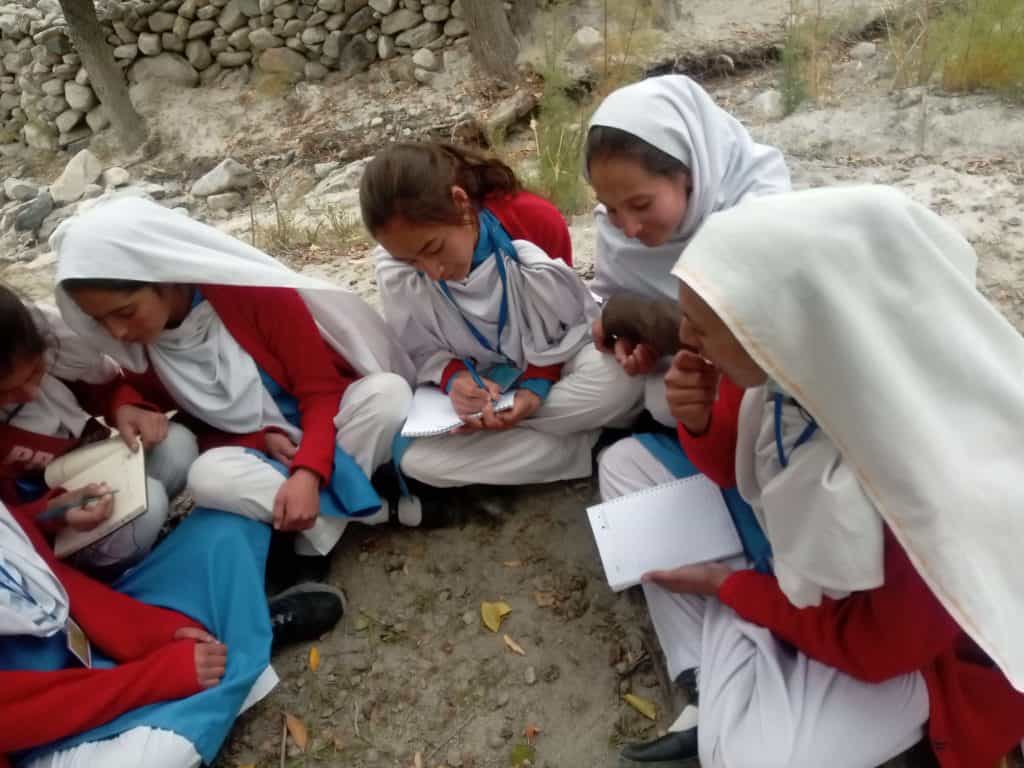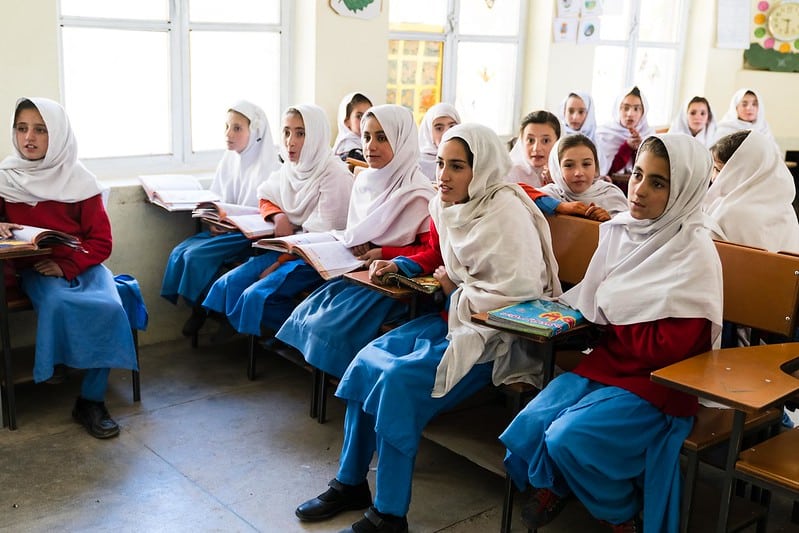Established in 1978, Government Girls’ High School Brep stands as the only high school for girls in the remote village of Brep, nestled in the Upper Chitral district of the Khyber Pakhtunkhwa province in Pakistan. In 2015, the school faced a setback when a flood destroyed its building, but fortunately it was restored by the United Nations Development Programme the following year, so the girls in the area were able to resume their schooling.
Azra Dad, English and Computer Science teacher at the school, has been teaching since obtaining a degree in Microbiology four years ago. After a year working at an Aga Khan School she joined the public sector, and has now been teaching in Brep for the past three years.

One of the challenges Azra has faced was that her students’ performance in English consistently fell below expectations.
“Like many teachers, I used to think that it was the students’ fault if they were unsuccessful, or it was due to their parents because they were not supporting their children with learning at home…But I was not fully satisfied with this answer. That said, I did not have any idea how to deal with such a challenge.”
Azra knew that she could not dismiss the issue as being solely the fault of students or parents. In early 2023, she joined the Schools2030 initiative, and started engaging with Human-Centred Design (HCD). Though initially she found the concept quite complex, through her perseverance she has gradually come to see HCD as a practical tool for addressing all sorts of challenges.
Azra’s explorations involved assessing both quantitative and qualitative data from the students, which revealed a weakness in creative writing. Engaging teachers and parents through a questionnaire provided valuable insights. Armed with this understanding, Azra embarked on some practical strategies, including a “My Vocab of the Day” prototype – for a week, students were assigned ten new words daily. After a week, they were asked to develop a story using the new words they had learned.


Students at Brep school working in groups to develop stories and learn new words in English
“It has been amazing to see how the students have come up with creative stories using the newly learned words. Based on the successful result of the prototyping, my courage improved and I became more confident to try out some other strategies to improve my students’ creative writing skills.”
Azra feels very proud of how Schools2030 has helped her develop professionally, and provided her with a practical approach to problem-solving, as she stated: “I firmly believe that continuous professional development opportunities are pivotal for any teacher to excel in her or his professional career to be an effective teacher.”
She also believes that her practical teaching methods are creating a more dynamic and engaging learning environment for students. The early results are showing positive improvements in their creative writing skills, and many are keen to tackle new words and challenges, despite English not being their native language. Azra will continue to test the efficacy of her ideas with Schools2030’s assessment tools, and with support from the team in Pakistan, she will continue to adapt and refine her approach over the coming months.
Azra is just one of the thousands of teachers involved in the programme globally who are committed to improving and transforming education even in the most remote or difficult circumstances. Their ongoing commitment to the success of future generations is both inspiring and humbling.
Read about other teachers in Pakistan, and their journeys with HCD here.
